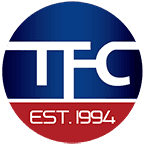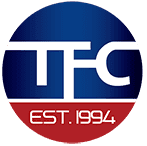Unsecured loans are a type of loan where collateral is not required, and approval is based solely on the borrower’s creditworthiness and ability to repay.
This is in contrast to secured loans, which require assets like a house or car as security.
Types of Unsecured Loans
- Personal Loans: Among the most common types, personal loans can be used for various purposes such as debt consolidation, home improvements, or unexpected expenses. They typically have fixed interest rates and repayment terms ranging from 12 to 60 months.
- Credit Cards: Credit cards provide revolving lines of credit that allow borrowers to make purchases up to a predetermined credit limit. They come with variable interest rates and require minimum monthly payments.
- Student Loans: Designed to cover educational expenses, student loans are typically offered by government or private lenders. They have repayment terms of 10 to 25 years with fixed interest rates.
- Signature Loans: Also known as “signature loans,” these are based on a borrower’s creditworthiness and income, allowing for various uses like debt consolidation or unexpected expenses.
- Payday Loans: Short-term unsecured loans meant to cover immediate expenses until the borrower’s next paycheck. They often come with high fees and interest rates.
FAQs About Unsecured Loans
1. What Are Unsecured Loans and How Do They Differ from Secured Loans? Unsecured loans are loans that do not require collateral, such as property or vehicles, to secure the loan. Unlike secured loans (like title loans), where collateral is used to mitigate risk for lenders, unsecured loans rely solely on the borrower’s creditworthiness and promise to repay. These loans are typically based on credit history, income, and other financial factors.
2. What Types of Unsecured Loans Are Available to Consumers? Consumers can access various types of unsecured loans, including personal loans, credit cards, student loans, and lines of credit. Each type of loan serves different purposes, such as financing large purchases, covering educational expenses, or managing day-to-day expenses without requiring collateral.
3. What Are the Advantages and Disadvantages of Unsecured Loans? The main advantage of unsecured loans is that borrowers do not risk losing assets if they default on the loan. However, they often come with higher interest rates and stricter eligibility criteria compared to secured loans. Additionally, approval for unsecured loans heavily relies on creditworthiness, making them less accessible to individuals with poor credit scores.
Expert Quote “Unsecured loans provide flexibility for consumers who need to borrow funds without putting up collateral. However, borrowers should be mindful of interest rates and repayment terms to avoid financial strain.” – Daniel Joelson, Consumer Finance Expert
Qualifying for Unsecured Loans
To qualify for unsecured loans, borrowers need good credit and a reliable source of income. Lenders assess creditworthiness based on credit scores and financial data, including payment history, credit utilization, and length of credit history.
Borrowers with credit scores over 700 are more likely to be approved for unsecured loans with favorable terms.
Benefits and Drawbacks of Unsecured Loans
Benefits:
- No collateral required.
- Flexible use of funds.
- Fixed interest rates on personal loans.
- Simple application process.
Drawbacks:
- Higher interest rates.
- Lower loan amounts.
- Shorter repayment terms.
Conclusion about Unsecured Loans
In conclusion, unsecured loans offer borrowers flexibility and convenience for accessing funds without collateral.
They are versatile and can be used for various financial needs. However, borrowers should carefully review the terms and conditions to ensure they can afford repayment.
It is important to consider alternatives and work towards improving credit scores to qualify for better loan terms. Borrowers should have a clear repayment plan in place to avoid additional fees and charges.
At TFC Title Loans, we offer secured title loans using the equity in your vehicle, providing a fast and easy way to access the funds you need.


